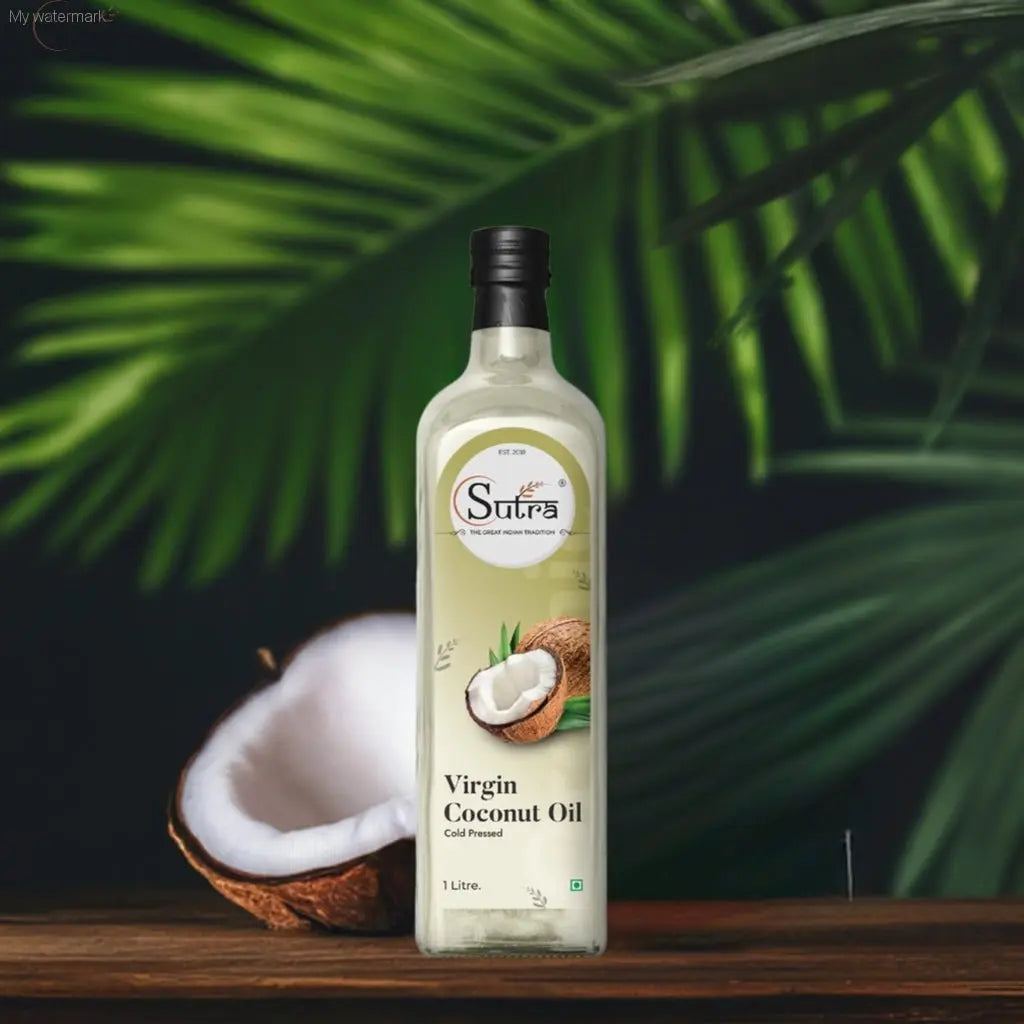Virgin Coconut Oil vs Regular Coconut Oil – What’s the Difference?

Virgin Coconut Oil vs Regular Coconut Oil – What’s the Difference?
Coconut oil is a household staple in many Indian homes—for cooking, skincare, and even baby massage. But when you shop online or at a store, you’ll often find two main types: virgin coconut oil and regular (refined) coconut oil. Wondering which one is better for your family?
Let’s explore the key differences between the two oils, including their extraction methods, nutritional value, taste, health benefits, and ideal uses.
1. What is Virgin Coconut Oil?
Virgin Coconut Oil (VCO) is made from fresh coconut milk or meat using methods like cold pressing or fermentation. No chemicals or high heat are used, preserving its natural aroma, nutrients, and antioxidants.
Key Features:
- Made from fresh coconuts
- Unrefined and unbleached
- Cold-pressed or centrifuged
- Retains coconut flavor and aroma
- Rich in Lauric Acid, Vitamin E, and antioxidants
2. What is Regular Coconut Oil?
Regular coconut oil, also known as refined coconut oil, is made from copra (dried coconut kernel). It goes through refining, bleaching, and deodorizing (RBD) processes.
Key Features:
- Made from dried coconut
- Refined, bleached, and deodorized
- Neutral taste and smell
- Longer shelf life
- Often stripped of nutrients
3. Virgin vs Regular: The Key Differences
| Factor | Virgin Coconut Oil | Regular Coconut Oil |
|---|---|---|
| Source | Fresh coconut meat/milk | Dried coconut (copra) |
| Processing Method | Cold-pressed, unrefined | Refined, bleached, deodorized |
| Taste & Aroma | Natural coconut flavor | Neutral |
| Nutrient Content | High in lauric acid, antioxidants | Fewer nutrients |
| Color | Slightly cloudy or white | Clear and transparent |
| Shelf Life | Up to 1 year | Up to 2 years |
4. Health Benefits of Virgin Coconut Oil
- Boosts Immunity: Thanks to lauric acid which fights harmful microbes.
- Promotes Skin Health: Natural moisturizer, anti-fungal and anti-bacterial.
- Supports Hair Growth: Strengthens hair follicles and reduces dandruff.
- Improves Digestion: Helps with nutrient absorption and gut health.
- Weight Loss Friendly: Contains medium-chain triglycerides (MCTs) for quick energy.
5. Health Benefits of Regular Coconut Oil
- Good for deep frying due to its high smoke point.
- Economical for bulk use in commercial kitchens.
- Shelf-stable and neutral in taste.
However, it lacks the antioxidants and nutrients found in virgin coconut oil.
6. Which One is Better for You?
Choose Virgin Coconut Oil if:
- You want maximum health benefits
- You’ll use it for skin care, baby massage, or oil pulling
- You prefer natural and unprocessed foods
Choose Regular Coconut Oil if:
- You want a neutral-tasting oil for high-heat cooking
- Budget is a concern
- You’re cooking in bulk for restaurants or hotels
7. How to Spot Real Virgin Coconut Oil?
Look for these labels:
- “Cold Pressed”
- “Unrefined”
- “100% Virgin Coconut Oil”
- Packed in glass bottles (preferable)
Also, true VCO has a strong coconut aroma and solidifies below 24°C.
8. Can You Use Virgin Coconut Oil for Cooking?
Yes! Virgin coconut oil has a medium smoke point (around 350°F or 177°C), making it great for:
- Stir-frying vegetables
- Baking healthy snacks
- Light sautéing
- Adding to smoothies or coffee
Avoid deep frying with VCO to retain its nutrients.
Conclusion: Which One Should You Choose?
If your goal is better health, natural living, and clean nutrition, virgin coconut oil is the clear winner. Its rich antioxidant profile and natural extraction process make it ideal for modern holistic lifestyles.
However, regular coconut oil still has a place for deep frying or budget-friendly cooking needs.
Choose based on your use case, but if in doubt—go virgin.
Image Alt Tags Suggestions:
- virgin-vs-regular-coconut-oil.jpg — “Virgin Coconut Oil vs Regular Coconut Oil comparison chart”
- cold-pressed-coconut-oil.jpg — “Cold pressed virgin coconut oil in a glass bottle”
- refined-coconut-oil.jpg — “Refined coconut oil in plastic bottle”


